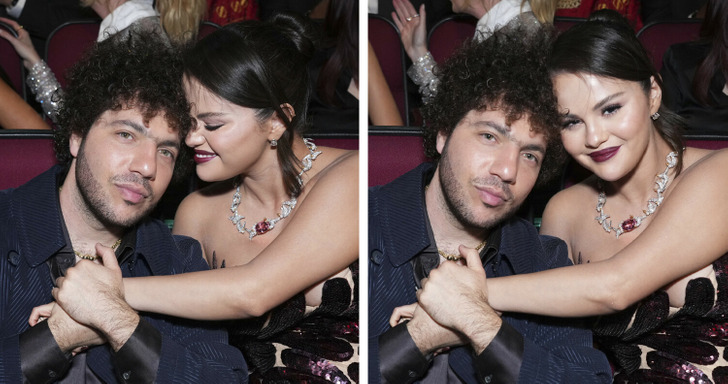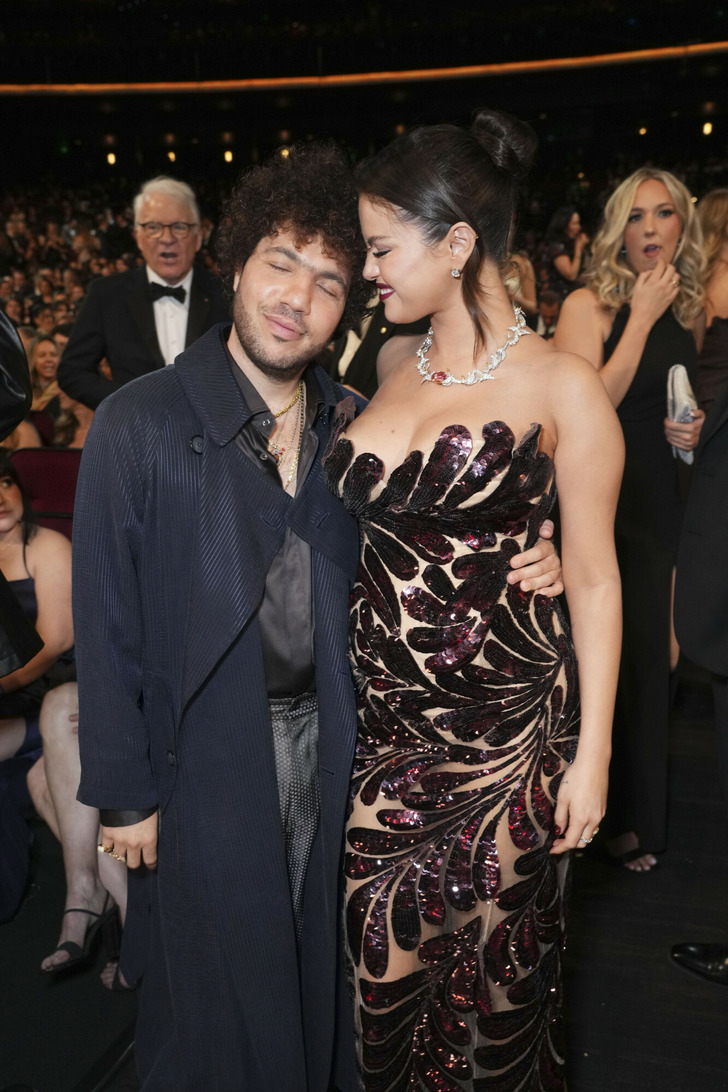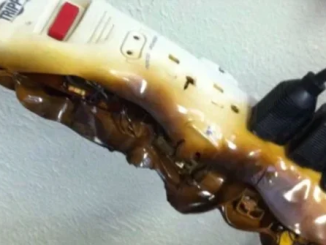
Older generations used to warn that people shouldn’t get tattoos because they’re permanent and someone may one day regret getting them. However, these days tattoo removal is an option. Although painful, it works after a few sessions but can leave behind some scarring. Either way, 35-year-old Leandro De Souza has decided to undergo laser treatments to remove almost 2 decades worth of ink.

Leandro De Souza is a native of Brazil and a proud father. However, his divorce almost a decade ago proved to be almost more than he could handle. As a result, De Souza went down a path of partying. During this time he accumulated more than 170 tattoos but his first ink was at just 13 years old. “I did the first one when I was 13,” De Souza explained. “The first ones were very much about the idolatry of the time.” However, he’s recently set out on a religious path of Evangelicalism. As a result, he’s decided to undergo the laser tattoo removal process.
Facing Heartbreak

Leandro’s first tattoos were inspired by his favorite bands, such as Nirvana, Guns N’ Roses, and Metallica. However, the majority of his tattoos were from a decade-long binge following his divorce. During that time, Leandro admittedly experimented with drugs like LSD, alcohol, and ecstasy.
Finding Motivation for Tattoo Removal

“I couldn’t stand the life I was living anymore. I was an attraction at (events I attended) and it felt like a circus animal.” He said regarding his decision for tattoo removal. De Souza was visiting a shelter almost a decade after his difficult divorce. This visit would change the course of his life. “The first step in everything in life is to accept that you can’t do it alone, that you are an addict, that you are a drug addict,” de Souza said. “And I managed to do that, I entered the municipal shelter in Bagé. Within a week, there was a lady who referred me and started to evangelize me.“
Turning a New Leaf

It’s been 2 years since De Souza changed his life and opted for tattoo removal. However, it’s a long process that will be more so for De Souza’s 170 tattoos. Moreover, he now spends his time speaking with “parents and children in homes that are in prisons.”
Leandro began the tattoo removal process with the help of a tattoo studio in Franco da Rocha, São Paulo, which heard about the exciting changes Leandro was making to turn his life around. He’s now been clean from alcohol for 3 years, and free of tobacco and other substances for a year. De Souza still has 6 more tattoo removal sessions before his ink is gone and his transformation, so far, is astonishing and awe-inspiring.
Tattoo Removal is a Modern Possibility

For many, getting a tattoo is inspired by the desire to express one’s creativity, treating their body like a canvas. However, others may regret their ink choices as they mature or their interests and relationship status change. Fortunately, tattoo removal is possible with advancing technology but there are a few side effects like tenderness, skin irritability, and even scarring.
Tattoo Removal Methods

Interestingly, tattoo removal comes with options. De Souza’s treatment, laser tattoo removal, uses lasers to “heat the ink particles,” breaking them down and making it “easier for your immune system to remove,” according to Cleveland Clinic. Laser tattoo removal sessions are scheduled about 3 months apart and can last anywhere from 30 minutes to an hour depending on the size of the ink. This method does come with side effects that range from mild skin irritation to painful blisters, but each person responds differently to treatment.
Skin Removal for Tattoo Removal

Another option for tattoo removal is surgical excision. The medical procedure requires a surgeon, who will “cut out the skin that contains a tattoo.” Then they will “stitch your remaining skin together.” The procedure probably sounds intimidating but it’s only used for small tattoos, as cutting an entire back tattoo and then stitching it up would be unpleasant, dangerous, and seemingly impossible.
Meanwhile, dermabrasion and chemical peels are used to remove the outer layers of skin. Unfortunately, both can cause severe skin sensitivity, especially in sunlight. Therefore, understanding the risks and how to treat the skin properly as it heals is essential to your skin’s health and physical comfort.
Not Recommended by Professionals

Lastly, and possibly least popular and effective, are tattoo removal creams. They can be used at home and often take months or years to yield results. Furthermore, they contain acids that “irritate or damage your skin.” As such, they’re usually advised against by medical professionals.
Can Anyone Get Tattoo Removal

In short, yes. However, some things are worth noting when considering tattoo removal. Firstly, tattoo removal takes time and similar or repetitive steps to be effective, regardless of your chosen tattoo removal method. The reason for this is that a tattoo artist applies ink in layers of the skin, so layers have to be broken down which can’t happen in one sitting, otherwise you’ll suffer severe and irreversible skin damage. Ultimately, that would put your overall health and immunity at risk. Additionally, your skin needs time between sessions to “flush out the ink” so, it’s recommended to wait a few weeks or months between most tattoo removal options listed above.
Secondly, certain ink colors are easier to remove than others. For example, blue and black are easy to remove during laser tattoo removal because “they’re better at absorbing light.” Meanwhile, colors like red are difficult to remove because their “molecular composition” is more resistant to the treatment options.
An Alternative

Consider having them turned into something else, rather than removed. For instance, if you’re considering tattoo removal and the reason has nothing to do with necessity, for work, or because, like De Souza, you’re on a new path. Instead, you don’t like how it looks anymore, have separated from the person who inspired the tattoo, or have other interests. In this case, you might consider another visit to the tattoo shop to have them create something else by covering the existing tattoo. For many, this option may be more satisfying and less time-consuming.
“Is She Pregnant?” Selena Gomez Causes a Wave of Controversy After Appearing in a Tight Dress
Selena Gomez made a dazzling appearance at the 75th Primetime Emmy Awards, bringing along her boyfriend Benny Blanco as her date. The 31-year-old singer looked absolutely fabulous in a gorgeous sheer dress. However, some people criticized her outfit, making comments about her body and even speculating whether she might be expecting.
450,000 sequins

Selena Gomez stole the spotlight at the event with her stunning outfit. She wore a captivating sheer gown by Oscar de la Renta, covered in intricate black floral details and a whopping 450,000 sequins. The dress was designed to reveal a subtle hint of skin, adding a touch of glamour to the ensemble with a beautiful Tiffany & Co. necklace.

Selena Gomez attended the event with her 35-year-old boyfriend, Benny Blanco, who is a record producer and actor. Benny looked stylish in a sharp outfit, wearing a long navy coat over a black silk button-up shirt and gray slacks. The couple shared a sweet moment during their walk, with Selena affectionately placing her hand on Benny’s shoulder.

According to an insider, Selena is in a great place and truly enjoying her relationship with Benny Blanco. The source emphasized that she appears to be genuinely happy and engaged, expressing that Selena is embracing a positive phase, perhaps influenced by her connection with Benny or simply reflecting on her current personal and professional state.
Her body became the main topic of discussion.

As everyone admired her vibrant appearance on the red carpet, a few online voices started guessing if she could be pregnant. Even though the star did not indicate a pregnancy, some presumed her curvier and fuller look might suggest otherwise, with one comment stating, “She’s about 4 sizes up”.

However, a supportive fan chimed in, clarifying that her fuller figure could be attributed to her health condition and medication. As the pictures from the event made their way onto social media, fans swiftly celebrated the star’s gorgeous look, flooding her with compliments like “stunning” and “looks amazing.” One supporter expressed, “Love her; she looks awesome and happy. Good for her.”
Negative comments don’t bother her.
Last year, during the Golden Globes, online comments started circulating about her weight gain. Responding to these remarks, Gomez took to Instagram Live with her sister, Gracie, by her side. She explained, “I’m a little bit big right now because I enjoyed myself during the holidays.” Then Gomez added, “But we don’t care,” and both sisters burst into laughter.

By light-heartedly dismissing these comments, Gomez not only set a positive example for her younger sister but also for countless girls and women worldwide. She emphasized that embracing your body and feeling confident, regardless of size, is what truly matters. After all, the key is self-love, which radiates from the inside out.
Selena recently shared that she’s considering wrapping up her music career soon. In this article, we delve into the reasons behind her decision and explore what might be prompting this potential shift in her career path.
Preview photo credit Jordan Strauss / Invision / AP Images / East News



Leave a Reply